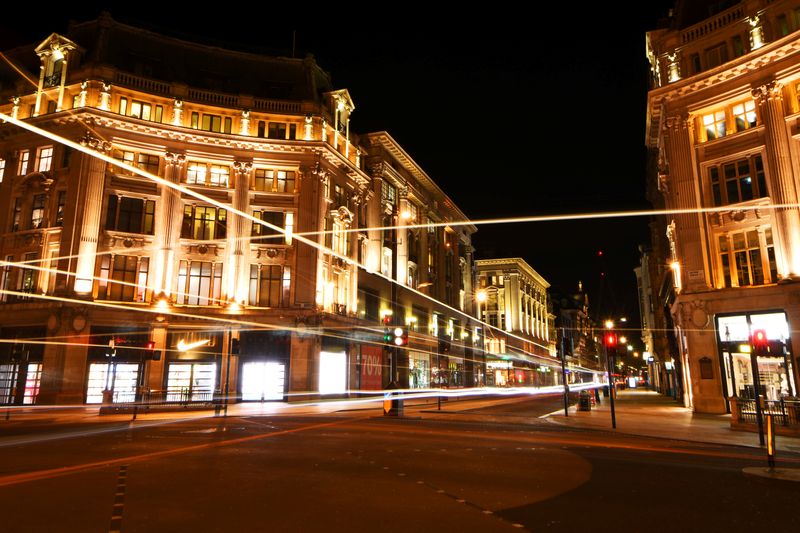By Guy Faulconbridge and Dylan Martinez
LONDON (Reuters) - At midnight, silence shrouds London's party land.
The packed streets and teeming bars that have tended to the nocturnal needs of drunken poets, louche musicians and revellers seeking adventure have been left desolate by the coronavirus lockdown.
From the pubs of London's West End to the hedonistic nightclubs of Shoreditch, the fun has departed the British capital, at least for now.
Gone is humanity: the crowds, the diners, the drunks, the bewildered tourists, the opera aficionados, the watchful doormen, the lovers snatching an elicit embrace.
Soho's rainbow flags flutter above deserted bars, massage parlours lie dark and neon signs outside shuttered sex shops offer fantasies but nothing more.
London at night is deserted as never before. The big screens of Piccadilly Circus flash at nothing but a few ducks from the nearby royal park waddling nonchalantly past the fountain pool.
A solitary bell tolls, usually inaudible above the din, echoing along John Nash's elegant Regent Street. Empty red bus follows empty red bus.
Like many other cities, London is now looked after by just a skeleton staff: bus drivers in masks, police officers, the odd food delivery cyclist and street cleaners.
Homeless people find life even harder than it was.
A 19-year-old heroin addict, who asked not to be named, was sleeping rough on the streets of Europe's richest city. She said she found it hard to get money and had nowhere else to go.
"London is dead - it's goodnight London," said Darryl Wainwright, 40, who has been homeless for nearly two years. "It is weird. It is crazy. I cannot understand it. I have never seen London like this."
WEST END FINALLY SLEEPS
The coronavirus lockdown has left many bars and restaurants across the world facing an unprecedented cash crunch: large rents, often high debt and zero income. Prime Minister Boris Johnson ordered pubs and restaurants closed on March 20.
London's night-time economy usually employs 1.6 million people, contributes billions of pounds to the economy and is one of Europe's top spots for revelry alongside Paris, Berlin, Madrid and Ibiza.
Soho, though, was deserted.
Its bars have long been a refuge for famous writers, musicians, resistance leaders and philosophers.
The French House, on Dean Street, was frequented by Charles de Gaulle after the fall of France. Welsh poet Dylan Thomas once left the manuscript of "Under Milk Wood" under a chair there.
Karl Marx lived in Soho, as did Thomas De Quincey, author of "Confessions of an English Opium-Eater". George Orwell celebrated U.S. recognition of his "Animal Farm" in the Dog and Duck pub.
The Beatles recorded "Hey Jude" in a Soho studio and David Bowie recorded "Ziggy Stardust" there too.
In nearby Chinatown, lanterns swaying in the wind are the only things that move. Leicester Square (NYSE:SQ) is even quieter.
Street sweepers said they now had the space to give the city a thorough clean.

One said: "The West End never sleeps - never - or not until now."